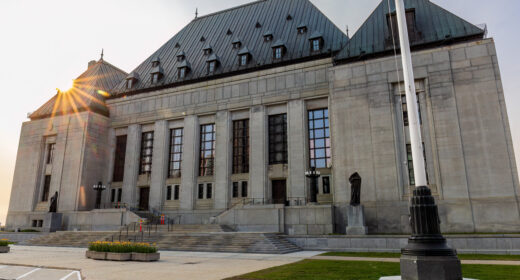Nelligan O'Brien Payne gratefully acknowledges the contribution of Natasha Chettiar, Student-at-Law in writing this blog post.
Among the amendments contained in the recent omnibus budget bill, Bill C-59, the following amendments affecting intellectual property in Canada are of particular interest.
Statutory Privilege
Canadian clients who use patent and trademark agents will now enjoy a statutory privilege in their confidential communications as a result of Bill C-59.
The amendments to the Patent Act and Trademarks Act provide that communication between clients and registered patent agents or trademark agents is privileged in the same way communication between clients and lawyers is subject to solicitor-client privilege. Before the amendments, even lawyers who were also patent agents or trademark agents could not rely on solicitor-client privilege when acting in their patent or trademark agent capacity. This meant that any communication could be discoverable during litigation, no matter how sensitive or private.
With the amendments, no person shall be required to disclose or give testimony on the communication between clients and registered patent agents or trademark agents in civil, criminal, or administrative proceedings. That is, provided that the communication meets the following three conditions:
a) It is between an agent (or individual acting on the agent’s behalf) and their client (or individual acting on the client’s behalf);
b) It is intended to be confidential; and
c) It is made for the purpose of seeking or giving advice with respect to any matter relating to the protection of an invention or trademark (including geographical indications and official marks).
The new statutory privilege will also extend to communications between foreign agents and their clients, so long as the three conditions set out above are met and if the communication is privileged in the jurisdiction in which the foreign agent is authorized to practice.
Finally, the privilege will extend retroactively to communications made prior to the date the legislation came into force – June 23, 2015 – provided the communication is still confidential as of that date. However, the privilege will not apply in respect of an action or proceeding commenced before June 23, 2015.
Force Majeure events
The amendments contained in Bill C-59 provide for the extension of time limits in circumstances of “force majeure”, such as power outages, floods, storms, earthquakes, wars, strikes, etc. The amendments allow the Canadian Intellectual Property Office to extend deadlines in the event of unforeseen circumstances, helping rights holders avoid unintentional losses of intellectual property rights.
Historically, there has been limited flexibility in Canada’s intellectual property laws to address the vulnerability of rights in circumstances of force majeure events. Significant recent events include the Montreal-Ottawa ice storm of 1998, the Eastern seaboard blackout of 2003, and the Calgary flood of 2013. Now that the Canadian Intellectual Property Office has the ability to extend key deadlines in cases of force majeure events, those affected will not be forced to forfeit their intellectual property rights due to missed deadlines.


